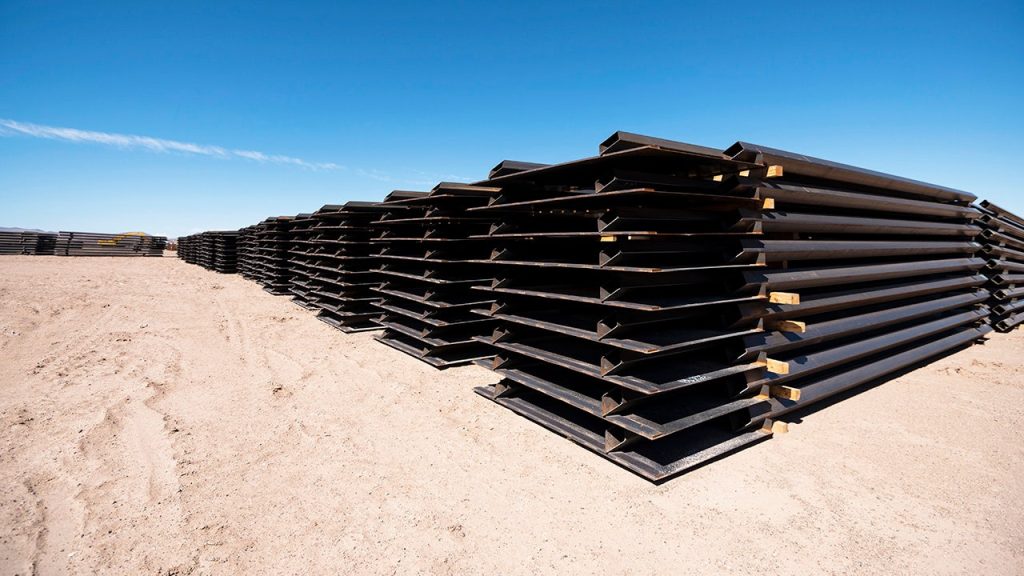Donald Trump, during a press conference at Mar-a-Lago, vehemently criticized the Biden administration’s handling of border wall materials, accusing them of selling these materials at a significant loss and then allowing private companies to attempt reselling them back to the government at inflated prices. He characterized these actions as indicative of either a deep-seated hatred for the country or profound incompetence, stating, “These people either hate our country or they’re stupid.” The core of his argument centered on the alleged sale of border wall materials for “five cents on the dollar” and subsequent attempts by a private company to resell the same materials back to his incoming administration at “200 cents on the dollar,” essentially doubling the original cost.
Trump’s accusations highlighted what he perceived as a deliberate and wasteful scheme. He claimed the private company, after acquiring the materials cheaply from the government, contacted his administration offering to sell them back at a substantial markup. This, he argued, demonstrated a blatant exploitation of taxpayer money and a disregard for fiscal responsibility. He emphasized the quality of the materials, describing them as “top of the line” and consisting of “steel, concrete, rebar,” materials specifically chosen and designed by Border Patrol. The implication being that these were not surplus or unwanted materials but essential components of a vital border security infrastructure.
The Biden administration’s actions, according to Trump, not only represented a financial loss but also a strategic blunder. He questioned the logic of dismantling a security measure and then repurchasing the same materials at a premium. His proposed solution was simple: “Just leave it in place.” This underscored his belief that the border wall was a necessary and effective security measure, and its removal was a detrimental decision. He contrasted the Biden administration’s actions with his own approach, highlighting the initial cost-effectiveness of the wall’s construction and the subsequent inflated price his administration was allegedly being asked to pay for the same materials.
Trump further emphasized the absurdity of the situation by highlighting the timing and nature of the alleged resale attempts. The private company, he claimed, was eager to sell back the materials “immediately,” a proposition he found ludicrous given the materials were already in the desired location. He saw this as further evidence of profiteering and a lack of common sense. He viewed the entire affair as emblematic of the Biden administration’s broader approach to governance, suggesting that this incident was representative of a pattern of poor decision-making.
The legal intervention that halted the sale of border wall materials played a significant role in Trump’s narrative. He credited “a very smart judge” with stopping the sales “cold,” preventing further financial losses and what he considered a blatant misuse of public funds. This legal victory reinforced his conviction that the Biden administration’s actions were not only ill-advised but potentially illegal. The court order preventing further sales served as validation of his criticisms and strengthened his argument against the administration’s handling of the border wall.
Ultimately, Trump’s press conference served as a platform to reiterate his condemnation of the Biden administration’s border policies. He framed the border wall material sales as a microcosm of larger issues, portraying the administration as either intentionally harmful to the country’s interests or fundamentally incompetent. His strong rhetoric, including accusations of “hating our country” or being “very stupid,” underscored his deep disapproval of their actions. He presented a stark contrast between his administration’s approach to border security and that of the Biden administration, emphasizing his commitment to the wall and his belief in its effectiveness. The incident, in his view, was not an isolated event but rather a symptom of a broader pattern of mismanagement and misguided policies.














